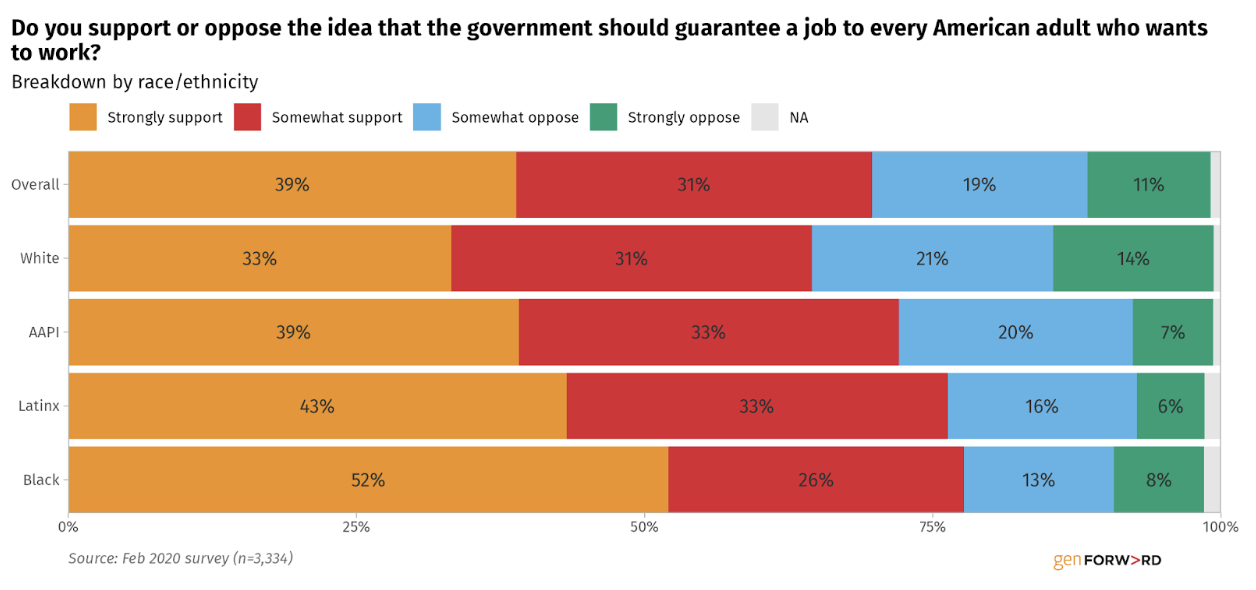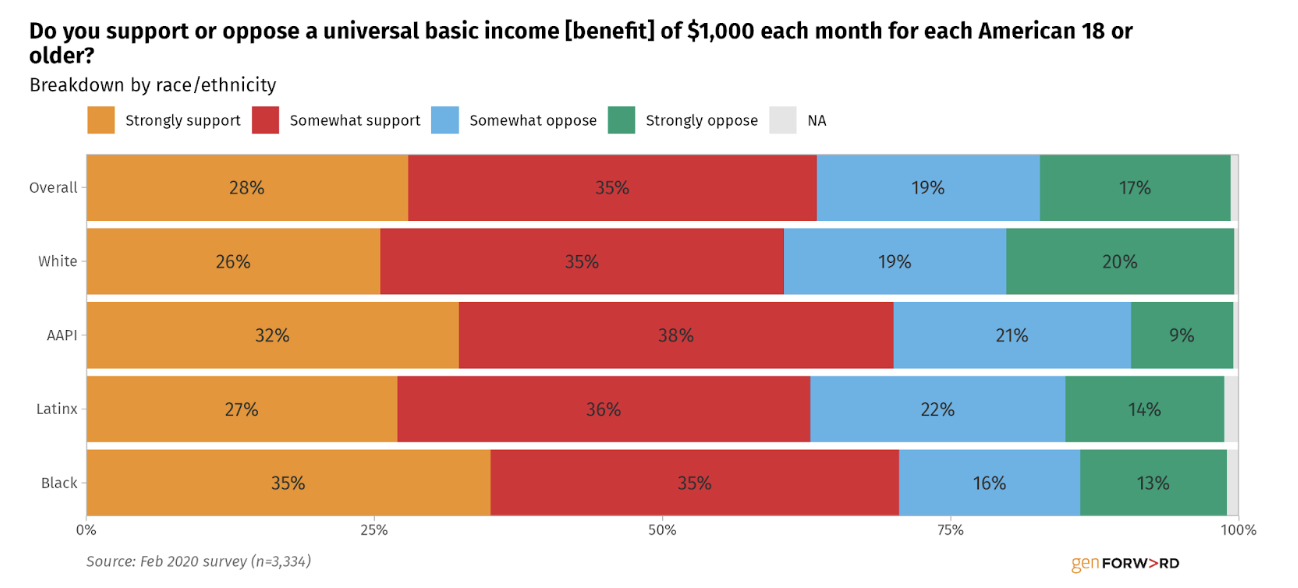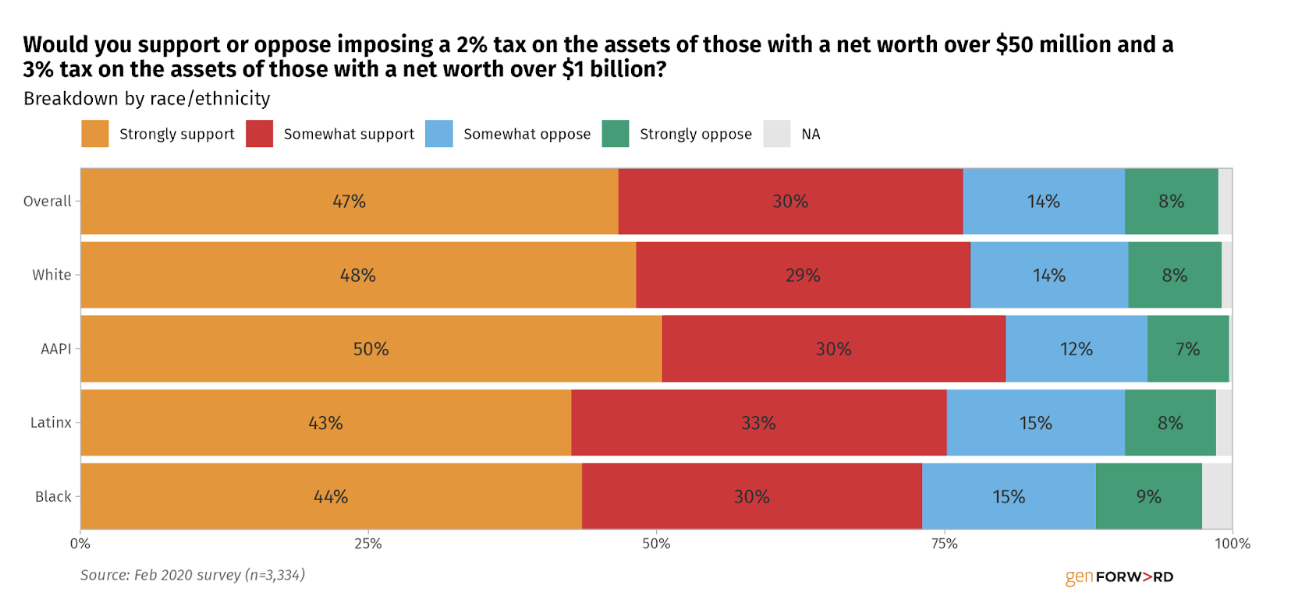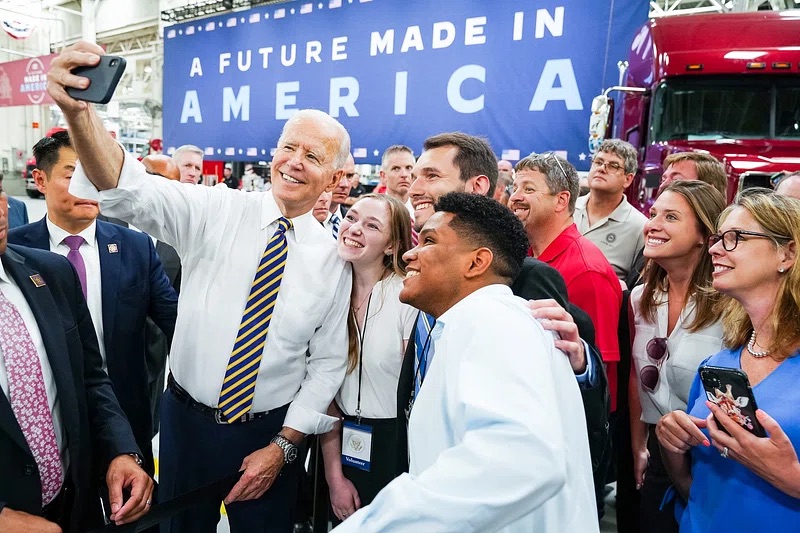By Matt Nelsen
August 29, 2025
Democrats are losing ground with voters in each of the 30 states that track registration by political party, and these losses are particularly pronounced among young voters and people of color. Since the 2024 Presidential Election cycle, party leaders and political commentators alike have puzzled over how to maintain the Democratic Party’s coalition, oftentimes examining small subsamples of young voters within much larger data sets in search of answers. And while there a several explanations for why Democrats have lost support among young people, our data—which uniquely benefits from a much larger sample of young people (18-40) and specifically young people of color—has told a fairly consistent story over the past four election cycles: young voters are hungry for a progressive, economic agenda that appeals to people across racial, economic, partisan, and geographic divides.
In our most recent GenForward Survey, 18-40-year-olds ranked several economic concerns as the most important problems facing the country, including economic growth (16 percent), income inequality (10 percent), and poverty (6 percent). Notably, income inequality ranked as the second most important problem for both Black (9 percent) and AAPI (11 percent) respondents and third for both Latinx (10 percent) and White respondents (10 percent). Similar concerns emerge across partisan, economic, and geographical divides. Notably, concerns about poverty (8 percent) and income inequality (9 percent) were especially pronounced in the midwest, where Democrats have seen support soften in recent years.

The results from our October 2024 data are fairly consistent with other election season surveys we’ve conducted over the past several years. Income inequality, for example, ranked as the most important issue for young voters in our October 2018 survey. In our October 2022 survey, poverty (8 percent) and income inequality (9 percent) both ranked in the top five most important issues for young voters, even amidst prominent debates over abortion rights and inflation.
Young voters may continue to report significant economic concerns in the wake of President Trump’s sweeping tax bill. The bill will cut funding to programs such as Medicaid and food assistance, and limit repayment plans for student loans while providing tax cuts to the wealthiest 10 percent of Americans. With these persistent—and potentially growing—economic concerns in mind, what policies could the Democratic Party promote to regain support from key constituencies within their coalition?
While it has been several years since the GenForward Survey has asked questions about a progressive economic agenda that would aim to alleviate poverty and address income inequality, we did address these topics in detail during the 2020 Democratic Primary. In our February 2020 survey, for example, we found that 70 percent of young people in our sample supported a federal jobs guarantee, including 78 percent of Black and 76 percent of Latinx respondents. While majorities of respondents across income, partisan, and regional divides supported this policy, support was especially pronounced among key constituencies: working class respondents and those residing in the South.

Similarly, 63 percent of those included in the sample supported a universal basic income of $1,000 each month for Americans 18 years of age and older, including 70 percent of both Black and AAPI respondents. Again, these results are most pronounced among working class respondents and those residing in southern states, but garner strong support across income, partisan, and regional divides as well.

Of course, investment in robust social programs such as a federal jobs guarantee and universal basic income would require Congress to identify new sources of revenue to adequately fund these programs. Young people in our sample frequently identify high taxes as a significant issue in their community, raising the question of whether they would support tax increases, particularly on the wealthiest of Americans, that could fund these programs. In February 2020, we found that 77 percent of those included in our sample supported significant tax increases on the wealthy, including 80 percent of AAPI respondents. This policy is popular similarly across income and regional divides and garners strong support (69 percent) among young Republicans.

Of course, it is fair to question whether young Americans today remain open to using revenue generated by taxing the wealthy to support robust social programs that seek to address poverty and income inequality. However, public opinion data consistently shows that the bulk of Americans support taxing corporations and higher-income households. Moreover, the persistent popularity of Bernie Sanders and the recent success of other Democratic Socialists such as Zohran Mamdani may provide a blueprint for Democrats to regain the support of young voters. And while some Democrats may continue to give a (literal) thumbs down to policies such as a minimum wage increase that would address young people’s very real economic concerns as a way to “play toward the center,” data from our large national sample of racially diverse young people suggests that these Democrats are seriously out of touch with youth public opinion.
The GenForward Survey, founded by Dr. Cathy Cohen at the University of Chicago, is the first of its kind—a nationally representative survey of over 3,000 young adults ages 18-40 conducted bimonthly that pays special attention to the ways race and ethnicity influence how young adults experience and think about the world.
The October 2024 Survey responses were collected from September 26, 2024, through October 6, 2024, among a nationally representative sample of 2,359 adults 18-40 in the United States. The overall margin of error is ±3.13 percentage points at the 95 percent confidence level.
The February 2020 Survey responses were collected from February 7, 2020, through February 20, 2020, among a nationally representative sample of 3,365 adults 18-36 in the United States. The overall margin of error is ±2.36 percentage points at the 95 percent confidence level.
Given the importance of race and ethnicity for shaping the diverse perspectives and lived experiences of young people, we believe researchers make a mistake when they present data on young adults in a manner that assumes a monolithic young adult vote.
Matt Nelsen (He/Him) is an assistant professor within the Department of Political Science at the University of Miami. His work examines how local-level institutions, especially schools and neighborhoods, act as microcosms of democracy and has been featured within Perspectives on Politics, Political Behavior, The Journal of Race, Ethnicity, and Politics, Psychological Inquiry, and the Washington Post.
More Perspectives



